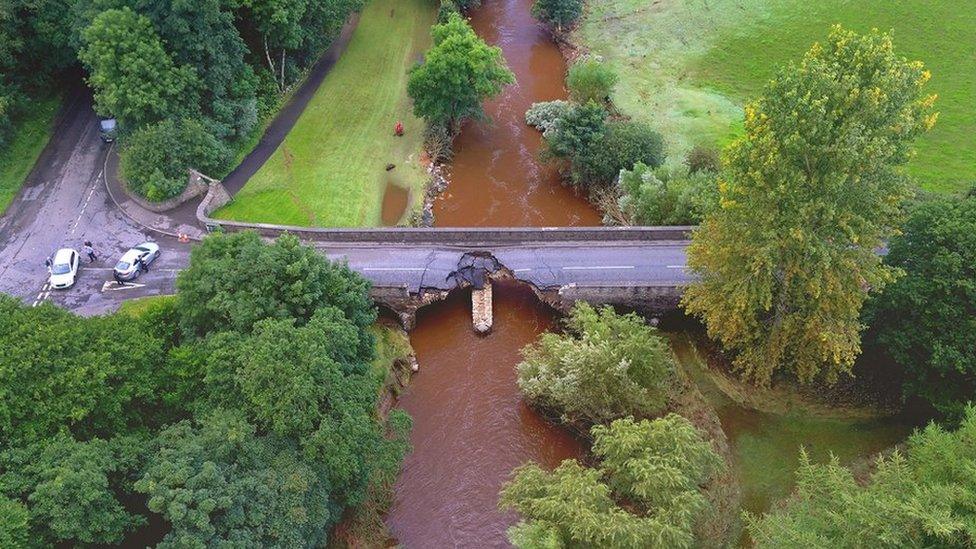Floods are 'the new normal', says academic
- Published
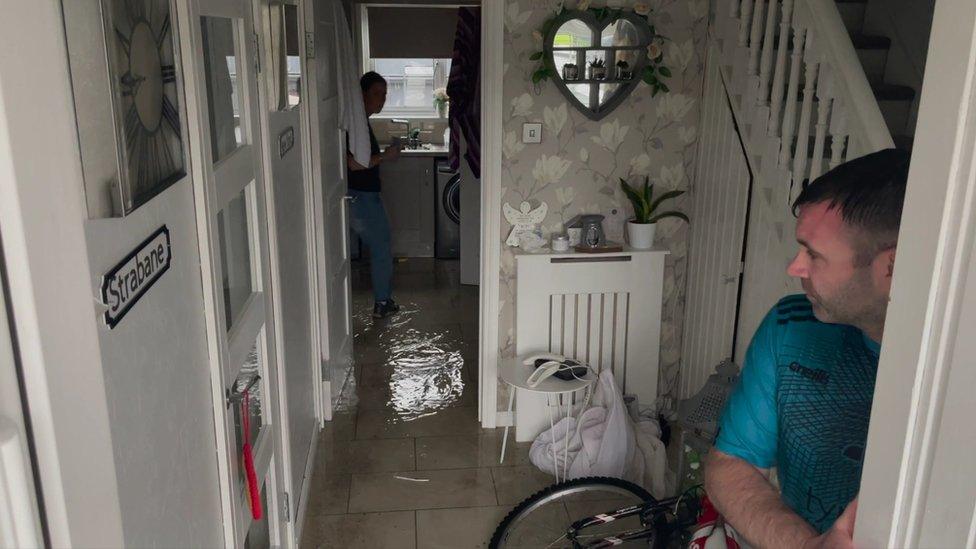
Flooding at a home in Strabane at the weekend
An academic has warned that flooding events like those in the north west this weekend will become more likely as climate change takes hold.
Six people had to be rescued as torrential rain caused water to rise in parts of Strabane and Londonderry.
"Sadly, this is the new normal as we further progress in heating up the planet's climate," said Prof John Barry, Queen's University, Belfast.
"What happens is the air becomes warmer and warmer air holds more moisture.
"And that then has to go somewhere, so the patterns we're seeing of these monsoon-like floods, these flash flooding events, are going to become more increasingly frequent."
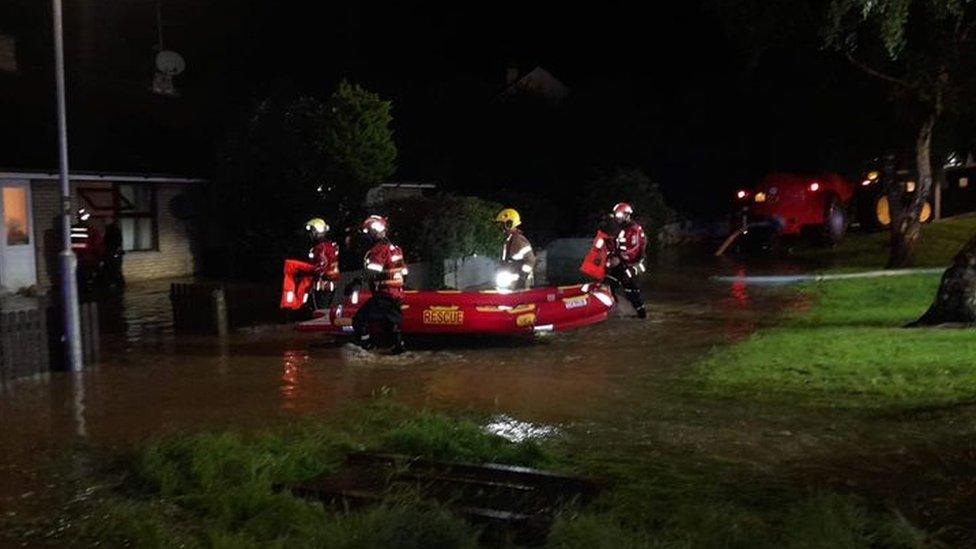
Six people were rescued on Saturday evening
That has been the experience of the owner of one business in Strabane town centre.
"It's happening twice a year now, it has to come to an end somewhere," said Anoop Guram, who owns a takeaway business.
"We left it in the past but this time we are taking the bull by the horns to see who is responsible.
"Climate change is one thing, but the infrastructure is not good enough.
He and other business owners are planning to hold a meeting next week with council representatives and politicians.
This customer of The Bluebell bar said a foot-and-a-half of water entered the pub on Saturday night
Derry City and Strabane District Council was the first in Northern Ireland to have its own Climate Action Plan.
In June, Northern Ireland's climate change bill became law, with a target of reaching Net Zero emissions by 2050.
It is hoped the measures it contains will help mitigate some of the effects of what has already gone into the atmosphere, while also allowing for adaptation measures to be introduced locally.
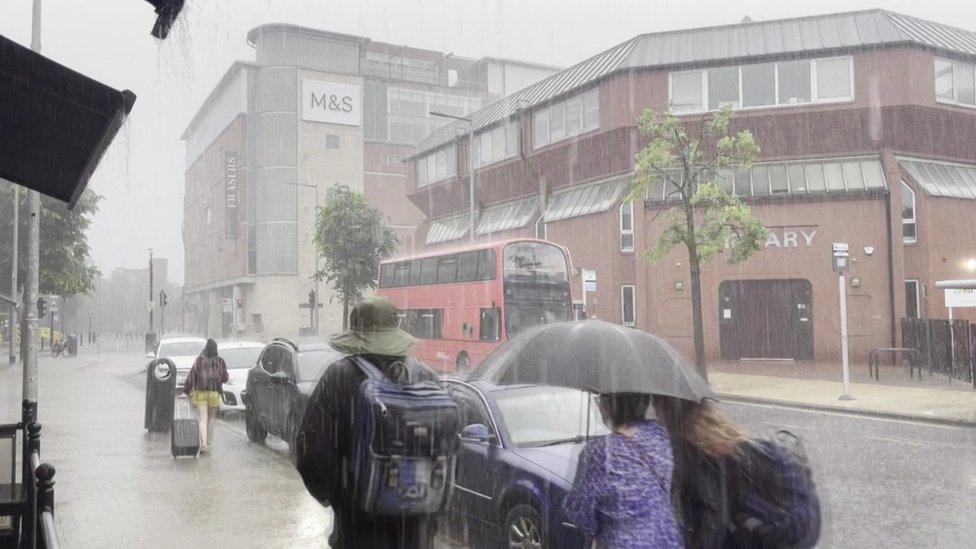
Foyle Street in Londonderry on Sunday
But methane will be reduced by no more than 46%.
It is a potent greenhouse gas, and agricultural emissions of it account for around two-fifths of the methane produced globally by human activities, external.
And some impact is already unavoidable, according to Prof Barry.
"We have baked in inevitable climate breakdown for the coming decades, and if we were to stop the burning of fossil fuels, if we were to move away from a heavy beef and dairy methane-emitting agricultural system it doesn't matter," he said.
"Because the way the climate system works is that it takes decades for these gases to work themselves through, and to produce the type of extreme weather events that we're now experiencing.
"So we're going to have to get used to this new normal.
"We're going to have to invest, both in climate mitigation, decarbonising our energy system, our transportation system, our agricultural system, while also adapting to inevitably warmer world which is going to have heat waves, and these extreme weather events as normal."
Infrastructure Minister john O'Dowd is due in the north west to see the damage on Tuesday.
This article was updated on 28 July 2022 to link to statistics relating to agricultural emissions and methane.
- Published25 July 2022
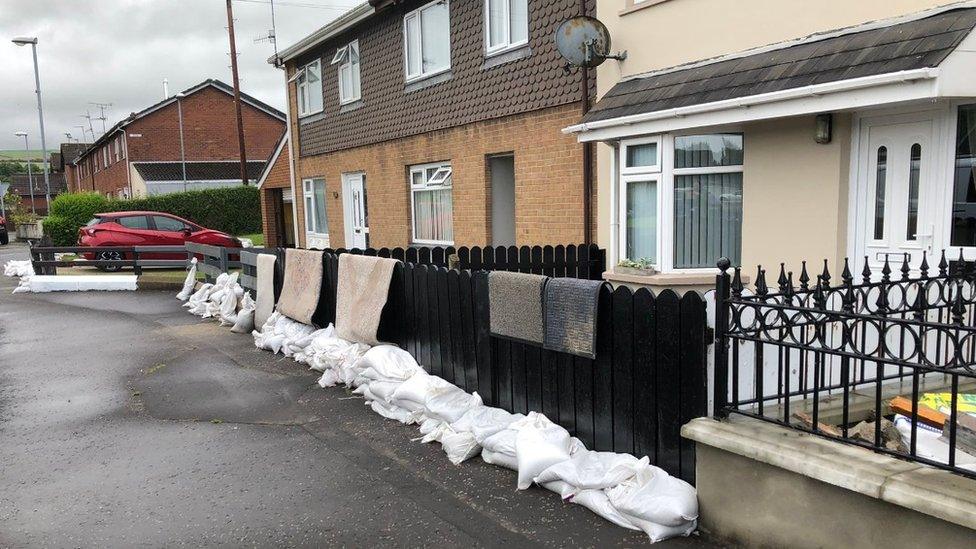
- Published24 July 2022
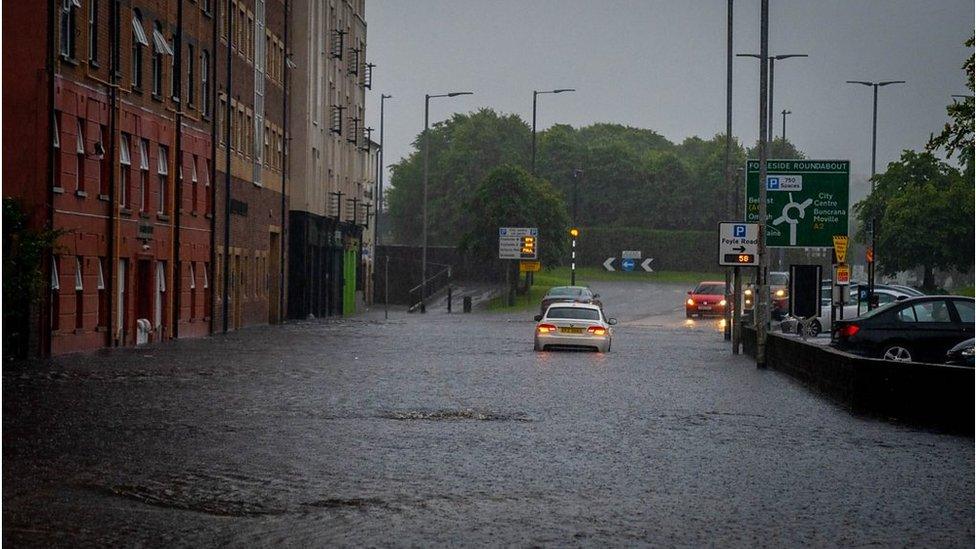
- Published24 July 2022
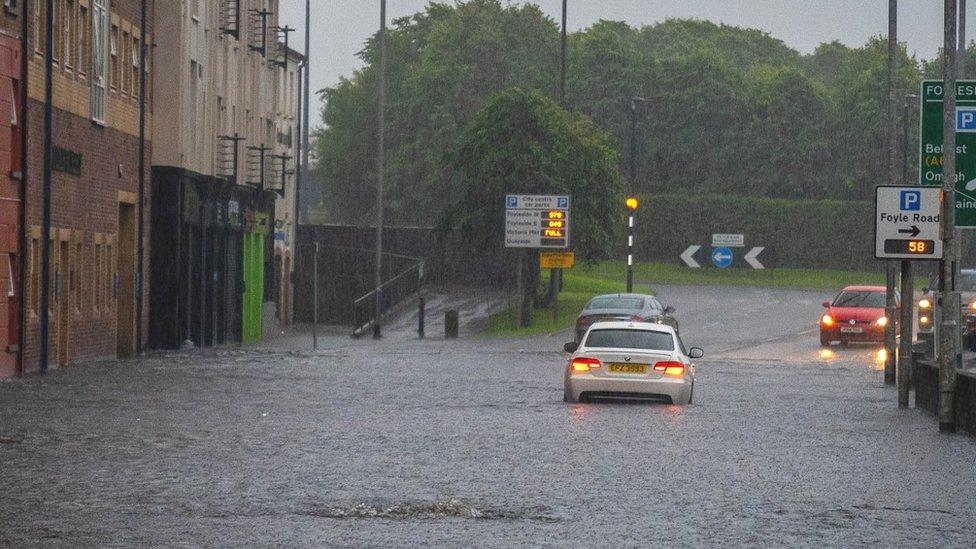
- Published24 August 2017
